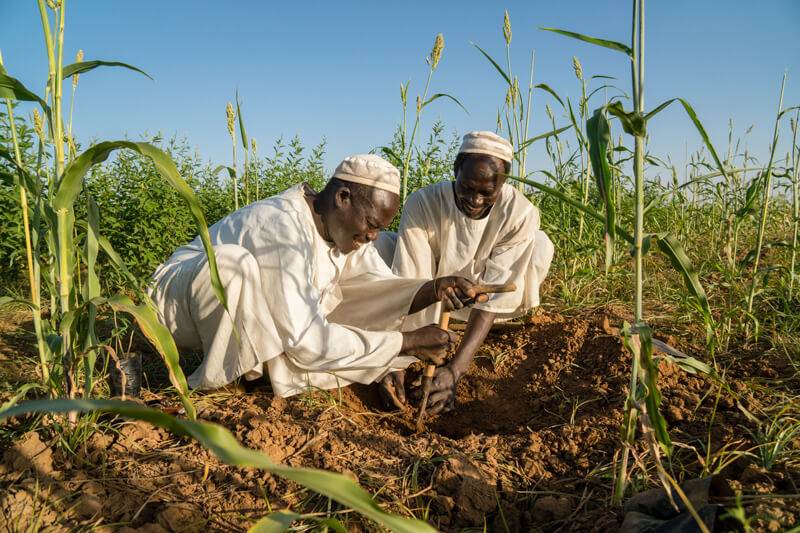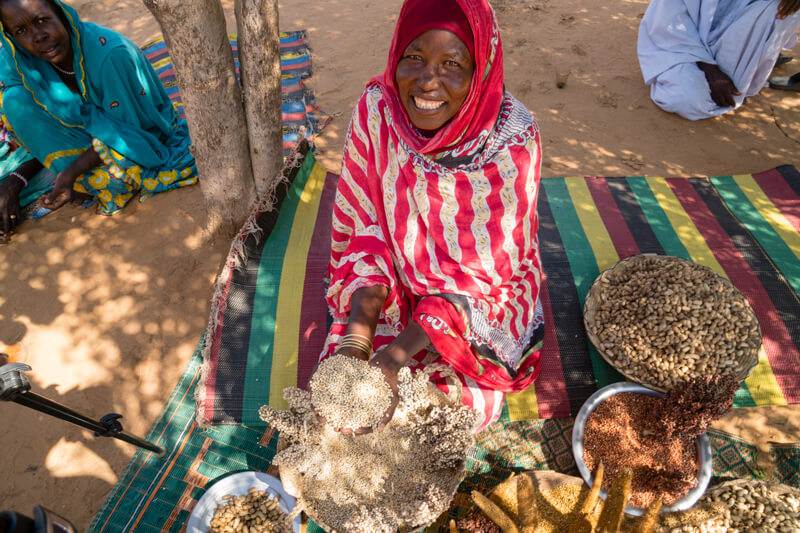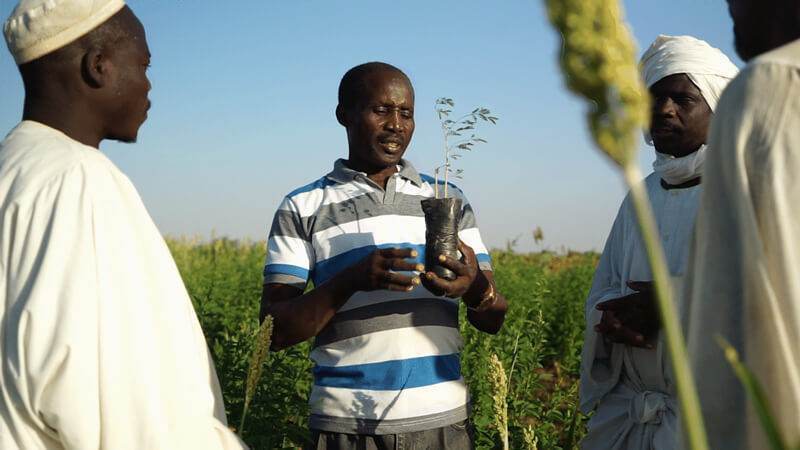PART 1 – DARFUR’S NEW
Remember that time when you had an amazing day at work?
Not every day at Practical Action is a perfect combination of fulfilment, feel good moments and insights into how we make the world a better place.
Reporting, planning and budgeting are all vital, but can make you forget why you work for such an incredible organisation – so when I’m suddenly confronted with something so fantastic it keeps me motivated no matter what the task, I try to remember it.
I have already laid out how diminishing natural resources caused world’s first climate change war in Darfur. And how, despite the incredible hospitality of people there, the precarious peace is constantly undermined as rival groups clash over access to the most basic human needs: fresh water and fertile land.
It may come as a surprise then, that my most memorable day in eight years with Practical Action (and there have been many others that stick in my mind), took place right in the middle of one of the world’s most troubled regions.
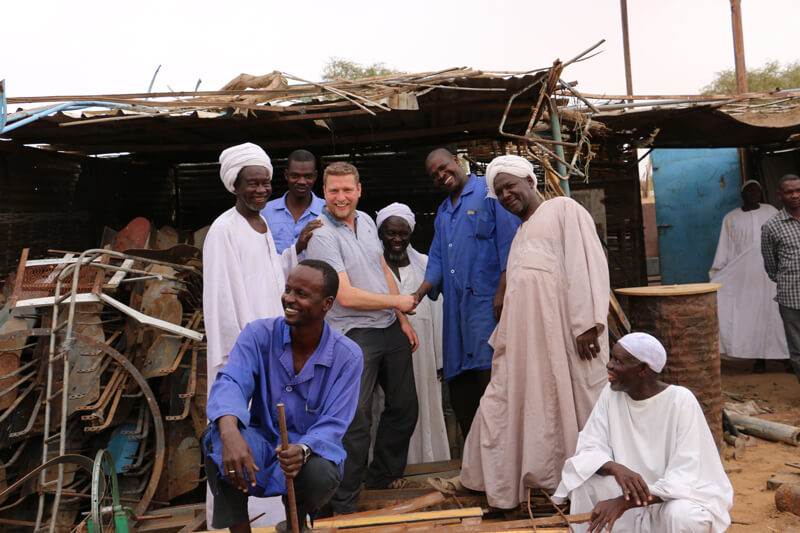
“The day began unspectacularly. I gathered my notebook and camera and joined with our Sudanese film crew early in the morning to drive to a village called Majdoub.”
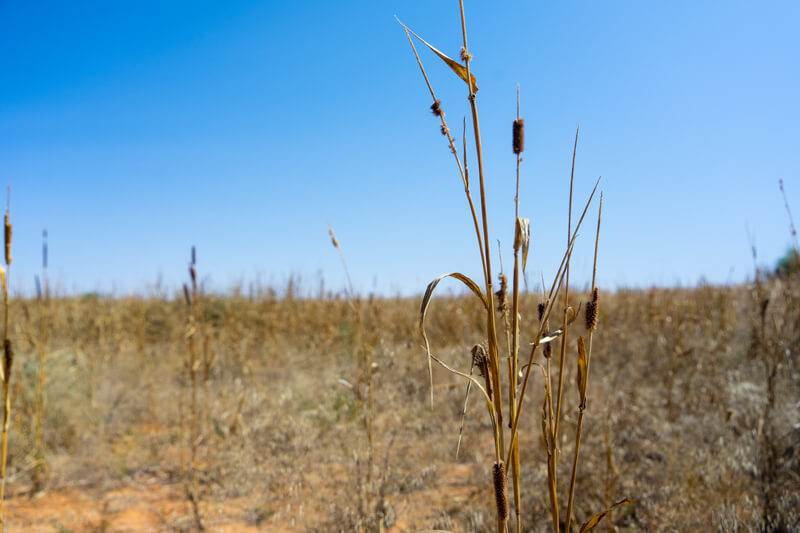
We were planning to capture stories from the village to illustrate how Practical Action had worked with the farming community there to help them adapt to changing weather patterns.
Just a few years before, Majdoub, like hundreds of other similar places nearby, had been a miserable place to live.
As people returned to farm lands they had been forced to leave during the civil war, they faced an impossible situation.
Heavy rains were washing away topsoil, reducing farmland. Lack of consistent rain meant traditional crops, like sorghum and millet, were failing. New pests were eating seeds, new weeds were attacking crops. Desertification was attacking homes and destroying pastureland. Pastoralists, who drive cattle along ancient migratory routes, were allowing their animals to eat farmers’ crops in order to survive. Fighting between the two groups regularly broke out.
Conversations at sunset in Majdoub revolved around how to get out and where best to go. Families were torn apart as men of working age left to scratch a living doing miserable jobs in urban centres, leaving women to face the impossible job of rearing a young family on less than a dollar a day.
But not anymore…
It is not unusual to be met by dozens of people when you arrive at a village where Practical Action has worked. We operate in remote, hard to reach places, so the appearance of a white (OK, often red) guy is unusual.
However, this day in Majdoub was different. We were met by crowds. I got out of the car, shook hands with hundreds of people then walked into a village community space where more people were waiting. And these guys were ready to party.
Passionate speeches began, reminding the crowd of how life had changed in the past few years. Energetic demonstrations of new farming techniques and equipment followed. Music started playing, an incredible singer called Sasa, famous for her songs of peace and reconciliation, started belting out songs and everyone started dancing. Within minutes, our project manager, the charismatic, apparently legendary, Awadalla Hamid, was lifted up by the crowd and began bouncing on the shoulders of hundreds of happy people.
This, may I remind you, is in a region where for nearly two decades, the only narrative has been one of war, destruction and despair.
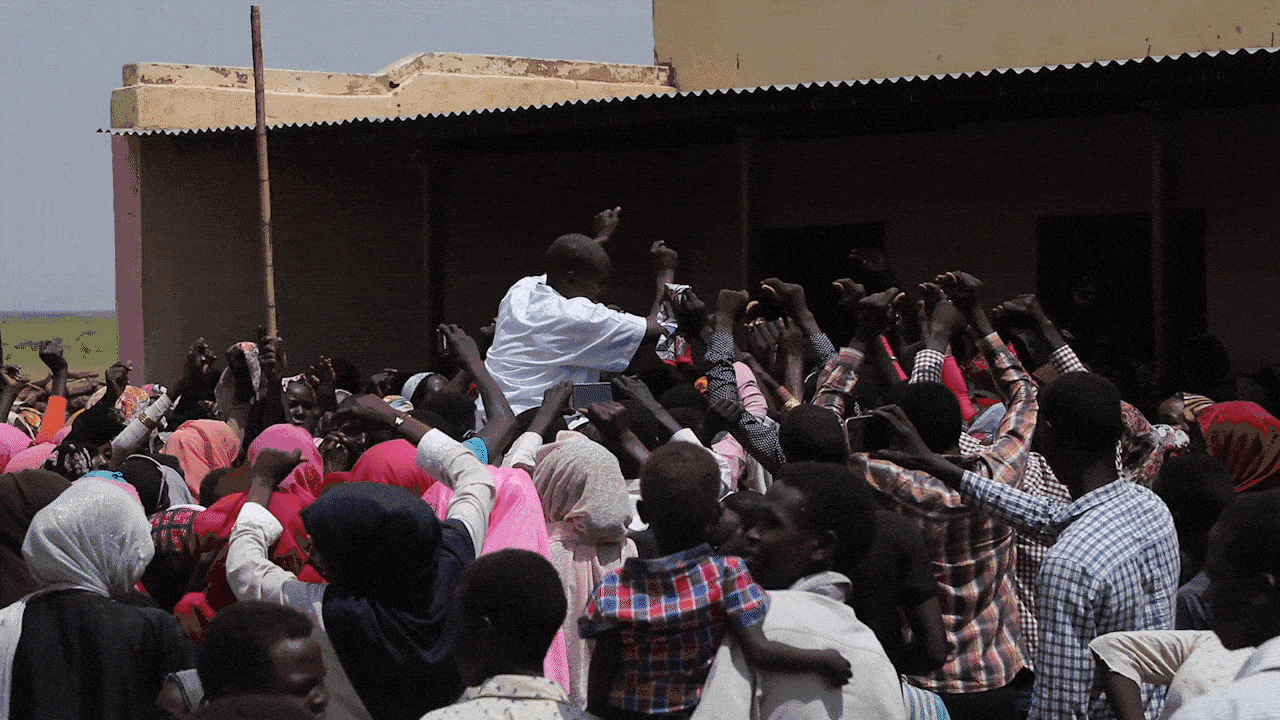
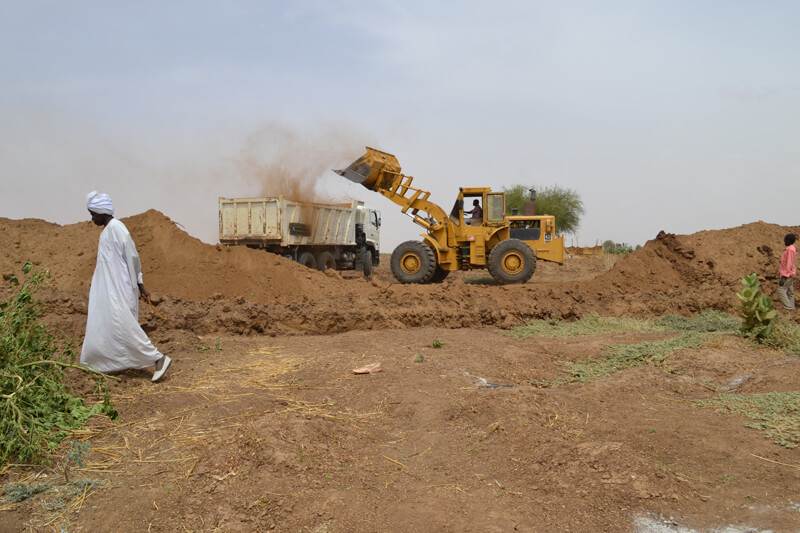
Finally, as the sun rose higher in the sky and the temperatures started to touch 40 degrees, even the effervescent Sasa was forced to call it a day, the party slowed and people slowly returned to their homes and their daily tasks, as I concentrated on the task in hand.
A cynic might say that the reception the Practical Action team received emphasises the divide between communities and INGOs by demonstrating just how desperate people are for their help and support.
I have thought about this at length. Practical Action has given people in Majdoub nothing for free – except knowledge and new techniques. Hundreds contributed their own labour to the rehabilitation of the local dam, putting in many hours of back-breaking work transporting stones to the site. Some have been given new seed varieties to trial, but once they learn how to grow them, in order to make this a meaningful income they will need to invest substantially. Others have received saplings for new community forests, but again they require hours of tending and pruning before yielding fruit or gum Arabic.
Indeed, no-one I spoke to in Majdoub was expecting anything more from Practical Action. Everyone was fully aware that we would be working with other communities in future and they were all absolutely delighted they had been given the opportunity to take back control of their lives.
